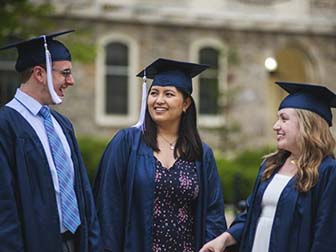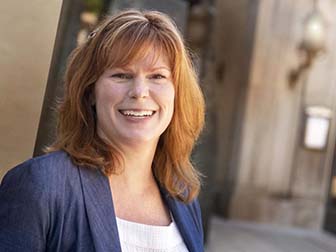UNIVERSITY PARK, Pa. — “It’s all about first things first,” said Penn State liberal arts alumna Deborah Anzalone, medical doctor (M.D.). “If you don’t have food, you don’t have the energy to do anything else. Without it, there can be no human dignity or self-esteem. Food is first.”
Anzalone considers issues surrounding food, such as hunger, food-related illness, and global food production policies, to be among the world’s greatest challenges. To help address those challenges, she pledged $400,000 to establish the Lucille E. Anzalone, R.N. and Deborah A. Anzalone, M.D. Early Career Professorship in Food Safety and Security in the College of the Liberal Arts. Penn State will add $100,000 in matching funds as part of its Faculty Endowment Challenge during the University’s current fundraising campaign, “A Greater Penn State for 21st Century Excellence.” Early Career Professorships typically rotate every three years to faculty members in the first decade of their academic careers.
The first endowed faculty position to address food safety and security in the college, the Anzalone Early Career Professorship will support a faculty member affiliated with the Rock Ethics Institute, a multidisciplinary unit that promotes research and outreach collaborations that address significant social issues and real-world ethical problems.
Anzalone wanted to be a physician from the time she was very young. She attended Penn State to begin that journey, but rather than majoring in “pre-med,” she majored in general arts and sciences – the liberal arts. She “fell in love with the liberal arts” and was grateful to be able to build a career in medicine on a liberal arts foundation. Anzalone graduated from Penn State in 1978 and went on to earn her medical degree at Hahnemann Medical School, now Drexel University College of Medicine in Philadelphia, Pennsylvania. She completed her postdoctoral work in internal medicine at Hahnemann and completed a fellowship in nephrology at Jefferson University Hospital. Thereafter, she enjoyed a successful career developing pharmaceuticals to address cardiovascular and kidney-related diseases. She retired in 2020 as an executive medical director for AstraZeneca Pharmaceuticals.



